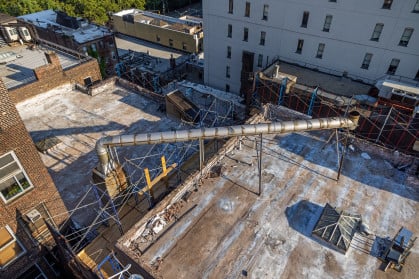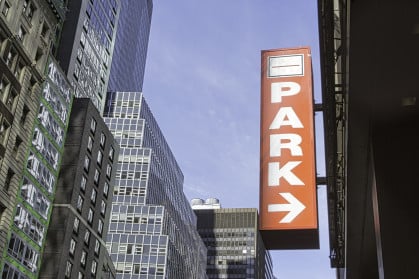The building next door wants access to our property. How much can we charge them in fees?
- Reimbursement is available for legal and engineering expenses
- License fees can be charged if the use of your property is impacted

iStock
Known as license fees, the compensation your co-op or condo can receive for granting access to your building depends on the loss of use or the interference with the use of your property.
“People mistakenly think you should be compensated for inconvenience and noise,” says real estate attorney Bruce H. Lederman, who leads the litigation practice at DL Partners. “When you live in an urban area you need to cooperate with your neighbor to allow construction and if you are reasonable the law protects you,” he says. This means you are entitled to reasonable license fees and the reimbursement of your legal fees and in some cases the fees of a structural engineer.
“This is why it’s important to be advised by an attorney familiar with access agreements to figure out what you can get,” says Christopher M. Tarnok, a real estate attorney at DL Partners who is currently negotiating several access agreements for co-ops, condos, landlords, and developers across Manhattan, Brooklyn, and Queens.
Generally, the more intrusive the access, the greater the compensation. “And while negotiating a fair license fee is important, so are provisions in the agreement to protect your building if the construction or access causes damage,” Tarnok says.
Scope and duration affect license fees
The license fee you receive depends on the scope of the work, including the level of intrusion of various protection measures and how much, and for how long, they interfere with your use and enjoyment of the building. Protections might include overhead safety measures, styrofoam and plywood on a roof, or protective fencing.
“If recreational use is impacted—for example, a seating area or patio is rendered unusable while the work is carried out—this will generally result in a greater license fee,” Tarnok says. You may also be able to negotiate adjusted fees based on the seasons, which you might not realize if you don’t have a lawyer with expertise representing you.
The duration of the access period also needs to be clearly outlined in the agreement.
“A developer may ask for access until they can get a Certificate of Occupancy, which can take a very long time,” Tarnok says. “You want a very specific access term, and should address what happens if the project overruns,” he says.
License fees can also be tiered, starting with a lower fee for the months of projected work and increasing substantially every month beyond the projected time frame. “Escalating fees are a great motivating factor for the other side to complete the work on time,” Tarnok says.
The importance of insurance provisions
“Many owners or boards make the mistake of signing an access agreement drafted by a developer and often the terms are not in their favor,” Tarnok says. In many situations, owners believe they cannot afford to have the agreement reviewed by an independent attorney. “You are entitled to reimbursement of attorneys’ fees incurred in negotiating an access agreement,” Tarnok says. Engineering fees can also be reimbursed.
You are entitled to these reimbursements if you negotiate reasonably and in good faith. “As long as someone acts reasonably, the courts will try to make sure they are not out of pocket and they are fairly compensated,” Lederman says.
It is very important you do not find yourself without remedy if the neighboring work leaves cracks in the walls or if there are breaches in your building’s security. Hiring an attorney who is familiar with access agreements can protect you from financial liability for this type of damage.
“You need insurance requirements and indemnification obligations outlined in the agreement and a provision addressing how and when repairs will occur for damages caused by the work,” Tarnok says.
What else should be negotiated?
A well-executed access agreement should also cover unforeseen situations such as pest control—for example, if rats are disturbed—and worker conduct. This might involve a requirement that workers don’t unload construction materials or take their breaks directly outside your building.
Each project is different, and an attorney can help you determine what is in the best interests of your building. “In urban areas it’s often impossible to build unless you have cooperation from neighbors,” Lederman says. So while compensation is important, don’t forget you may be the one requesting access in the future—for structural repairs or some other reason—so anything you ask from your neighbor will likely be asked of you.
You may consider asking for reciprocal access rights, which are particularly helpful if you have a project on the horizon requiring access to the neighboring property.
“Negotiating reciprocal access rights also helps to keep your costs down because you are essentially agreeing to access terms governing both parties,” Tarnok says.
New York City real estate attorneys Bruce H. Lederman and Christopher M. Tarnok are partners at the boutique real estate law firm DL Partners, offering innovative legal services to co-op and condo boards, developers, condominium sponsors, architects, contractors, property owners and brokers. For a complimentary 15-minute consultation on access agreements or another real estate matter, send an email to Christopher or call (212) 624-4185.
Sign Up for our Boards & Buildings Newsletter (Coming Soon!)
Thank you for your interest in our newsletter. You have been successfully added to our mailing list and will receive it when it becomes available.





















